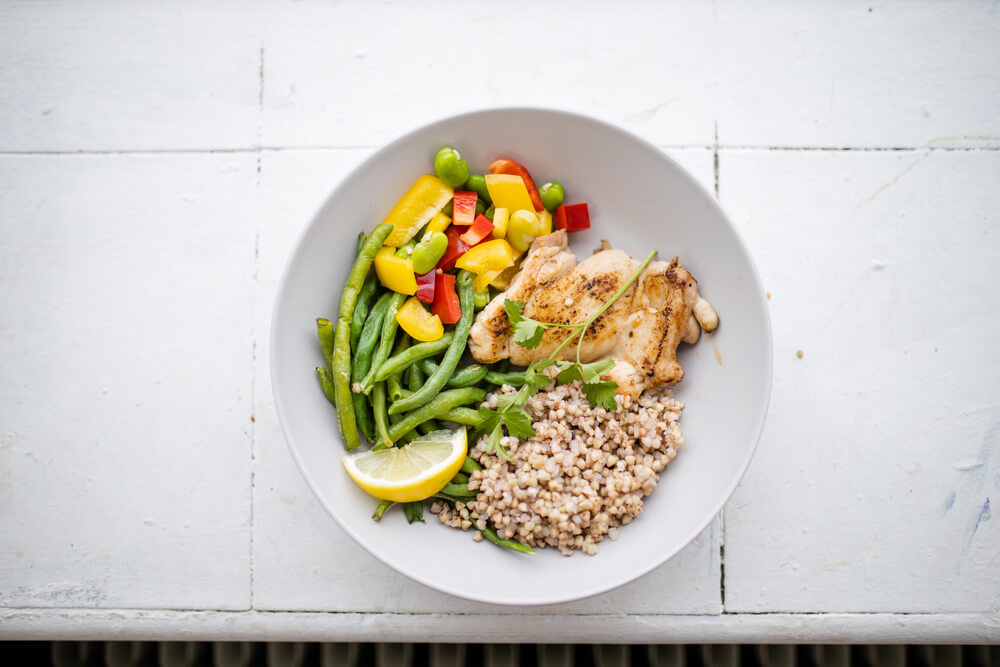Eating a balanced diet doesn’t have to be complicated or overwhelming. With just a few simple habits, you can nourish your body with the nutrients it needs to feel your best. Whether you’re new to making healthier choices or looking for ways to simplify your current routine, these tips will help guide you toward a balanced diet that works for your lifestyle. Let’s break it down in easy, manageable steps that can fit into any schedule.
Start with Variety
The foundation of a balanced diet is variety. Eating a range of foods ensures you get a wide variety of nutrients. Each food group offers something unique, and by mixing things up, you make sure your body gets the vitamins, minerals, fiber, and protein it needs.
Aim to include a variety of fruits, vegetables, whole grains, protein sources, and healthy fats in your meals. For example, try swapping out your usual fruits for something different each week or experimenting with new vegetables to keep things interesting. The more colorful and diverse your plate, the better!
Focus on Whole Foods
Whole foods are those that are as close to their natural state as possible. Think fresh fruits, vegetables, whole grains, nuts, and seeds. These foods are generally more nutrient-dense than processed options, and they often contain more fiber, which can help you feel full longer.
Incorporating whole foods into your diet doesn’t have to be hard. Start by adding an extra serving of vegetables to your meals or choosing brown rice over white rice. Small swaps like these can make a big difference over time.
Balance Your Plate
When it comes to healthy eating, balance is key. A balanced plate typically includes a mix of protein, carbohydrates, and fats, with plenty of vegetables for added nutrients. For example, half of your plate could be filled with vegetables, a quarter with protein (like chicken, tofu, or beans), and the remaining quarter with whole grains (like quinoa or brown rice).
Balancing your meals in this way helps ensure that you’re getting a little bit of everything. This approach keeps you energized and satisfied while providing essential nutrients to support overall health.
Listen to Your Hunger Cues
One of the most important things you can do for healthy eating is learning to listen to your body. Eating when you’re hungry and stopping when you’re satisfied is a simple yet powerful approach to managing your diet. It helps you avoid overeating or eating out of boredom.
If you’re unsure whether you’re actually hungry or just craving something, take a moment to check in with yourself. Sometimes a glass of water or a short walk can help clear up whether you’re truly hungry or just experiencing a passing urge.
Plan Your Meals
Meal planning can save time and ensure that you have healthy options available when hunger strikes. By preparing your meals ahead of time, you can avoid the temptation of fast food or overly processed snacks. It also allows you to make healthier choices when you’re not rushed.
You don’t need to plan every meal for the week, but it can be helpful to have a few go-to recipes ready. Stock up on fruits, vegetables, grains, and protein sources that are easy to prepare. Pre-chop veggies, cook grains in bulk, or prepare snacks in advance to make your week easier.
Drink Plenty of Water
Water is an essential part of any healthy eating plan. While we often focus on food, hydration is just as important. Drinking enough water helps support digestion, energy levels, and overall health. The exact amount of water each person needs varies, but a good rule of thumb is to drink water throughout the day, especially if you’re feeling thirsty.
Carrying a water bottle with you can remind you to drink more often, and it can help curb hunger if you’re unsure whether you’re hungry or just thirsty.
Choose Healthy Fats
Not all fats are created equal. While you may have heard that fats are bad for you, healthy fats actually play an important role in your diet. Foods like avocados, olive oil, nuts, seeds, and fatty fish provide beneficial omega-3 fatty acids and help support brain health and overall well-being.
You don’t need to load up on fat at every meal, but incorporating small amounts of healthy fats can add flavor and texture to your dishes while providing nutrients that are important for long-term health.
Control Portion Sizes
Even with healthy foods, portion control is essential. Eating in moderation is the key to maintaining a balanced diet. You don’t need to eliminate your favorite foods; instead, focus on controlling the amount you eat. Using smaller plates, bowls, and utensils can help you eat less without feeling deprived.
It’s also important to avoid eating too quickly. Take your time and savor your meals. This allows your body to register fullness, so you’re less likely to overeat.
Don’t Skip Meals
Skipping meals, especially breakfast, can lead to overeating later on in the day. When you skip a meal, your body can become overly hungry, and you may make less nutritious choices. Aim for three balanced meals a day, and include healthy snacks if needed.
If you’re busy and don’t have time to prepare a full meal, grab something easy like a smoothie, a piece of fruit, or a handful of nuts. Keeping quick, nutritious options available makes it easier to stick with a balanced eating routine.
Mindful Eating
Mindful eating is all about paying attention to what you’re eating and how it makes you feel. Rather than rushing through meals, take time to enjoy your food. This practice can help you appreciate your meals more and make healthier choices without distractions.
When you’re mindful of your food, you’re also more likely to notice when you’re full and when you’ve had enough. This helps you avoid overeating and makes eating more enjoyable.
Be Flexible and Enjoy the Process
Healthy eating doesn’t have to be rigid or perfect. Life happens, and there will be times when you don’t stick to your plan. That’s okay! The goal is to make healthier choices most of the time, not to be perfect every time.
It’s important to find a balance that works for you. Healthy eating is about making small, sustainable changes that can lead to long-term benefits. Remember to enjoy the process, and allow yourself flexibility when needed. There’s no one-size-fits-all approach, so do what feels right for you.
Final Thoughts
A balanced diet doesn’t have to be complicated. By incorporating variety, focusing on whole foods, and being mindful of portions, you can make healthy eating a simple and sustainable part of your daily routine. Listen to your body, plan ahead, and enjoy the process as you make choices that nourish you. With these tips in mind, healthy eating can become a natural and enjoyable part of your lifestyle.







Leave A Comment